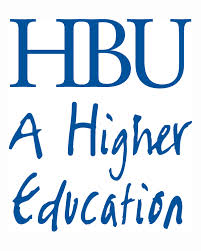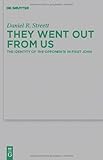 I ran across this quote on the B-Greek discussion list today: “I define ‘exegesis’ as learning to extract meaning from a language that one does not control.” (Randall Buth)
I ran across this quote on the B-Greek discussion list today: “I define ‘exegesis’ as learning to extract meaning from a language that one does not control.” (Randall Buth)
What do you think about that quote? I find it very interesting that it’s usually only Biblical scholars who talk about ‘exegesis’ and ‘exegetical method.’ In fact, I presented a paper (at the 2011 SBL meeting) on ‘exegesis’ in the communicative Greek classroom where I remarked on this at length:
“When I discuss this [teaching Greek as a living language] with other Greek teachers, one of the most common questions that comes up is: What about exegesis? I would respond with three points:
First, the question, “what about exegesis?” often presupposes a concept of exegesis that I find less than helpful. Much of the time, what people mean when they say exegesis is an atomistic study of a very short stretch of text, usually no more than a few lines. “Exegesis” means detailed grammatical and lexical study, determining what the logical relationships between propositions is, and then, as the ‘crowning achievement,’ translating the text into English.
[Let me interject, at this point, that there is nothing in that sequence (except the translation part) that cannot be done in Greek. Is there any reason not to use the grammatical terminology the ancient Greeks themselves used? Grammar can certainly be taught in a communicative classroom. It should simply be taught in Greek. Why in the world do we think that we would need to use English metalanguage to discuss Ancient Greek?]
This is rather strange. It might be helpful to realize that people do not normally approach literature this way. I did a search on Google Books the other day for the term “exegesis.” I found that every book on the first ten pages that came up was a Biblical Studies book. Literary critics don’t really talk much about exegesis, nor do classicists, surprisingly. Why is that? Those groups talk a lot about interpretation and hermeneutics and context, but not “exegesis.”
 I would like to propose that much of what people mean by “exegesis” is artificial, atomistic overanalysis of little bits of texts that were originally intended to be heard as wholes, not analyzed, labelled and translated. That kind of exegesis results from an approach to texts that I like to call ‘the Bible Code mentality.’ I am afraid that our approaches to teaching Greek probably contribute significantly to that mentality.
I would like to propose that much of what people mean by “exegesis” is artificial, atomistic overanalysis of little bits of texts that were originally intended to be heard as wholes, not analyzed, labelled and translated. That kind of exegesis results from an approach to texts that I like to call ‘the Bible Code mentality.’ I am afraid that our approaches to teaching Greek probably contribute significantly to that mentality.
 Now, please don’t misunderstand me. I am all for engaging in thoughtful, close reading of the text. I am especially in favor of intensive study of the texts in their literary, social, and historical contexts. Indeed, I think these are much more beneficial than the microanalysis of grammar and syntax that is often taught to students.
Now, please don’t misunderstand me. I am all for engaging in thoughtful, close reading of the text. I am especially in favor of intensive study of the texts in their literary, social, and historical contexts. Indeed, I think these are much more beneficial than the microanalysis of grammar and syntax that is often taught to students.
So, I find that the question, “what about exegesis?” presupposes that to interpret a text, one must be able to label, diagram and translate it into another language. I disagree with this. When I read and discuss English literature, I do not analyze syntax or diagram sentences. I also do not label each element using linguistic metalanguage. Rather I discuss meaning, themes, characterization. I summarize. I paraphrase. I make connections with other parts of the text. I tease out logical implications. I examine elements of literary artistry. All of this can be done, indeed, is best done, in the language itself.
To summarize, when you can read a language fluently, much of what we call exegesis becomes basically unnecessary.


 In his work on the Special Laws of the Torah (De specialibus legibus), Philo enumerates 10 festivals he finds described in the Law. The first, he says, might surprise the reader: “This festival is every day” (2.41). He goes on to explain that for the virtuous every day is, in truth, a festival. If someone were completely virtuous, her life from beginning to end would be an uninterrupted festival (2.42). How does Philo come to this conclusion?
In his work on the Special Laws of the Torah (De specialibus legibus), Philo enumerates 10 festivals he finds described in the Law. The first, he says, might surprise the reader: “This festival is every day” (2.41). He goes on to explain that for the virtuous every day is, in truth, a festival. If someone were completely virtuous, her life from beginning to end would be an uninterrupted festival (2.42). How does Philo come to this conclusion? 







